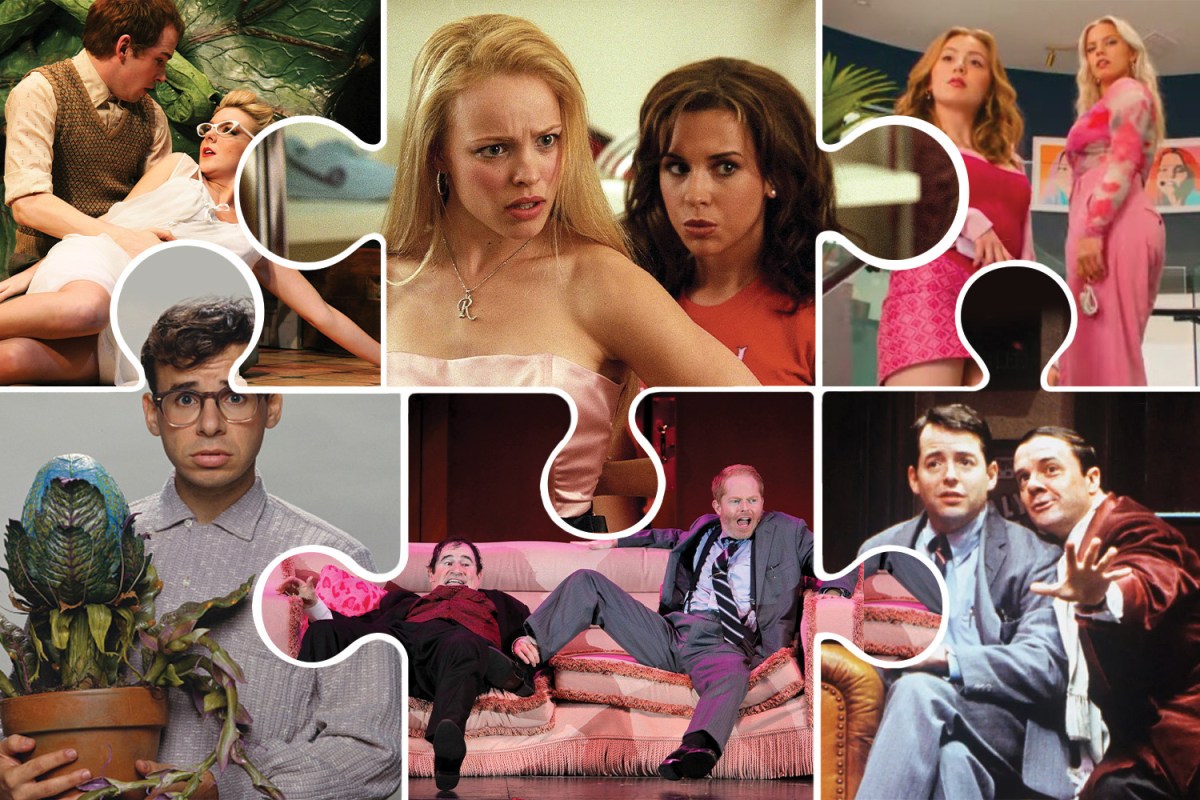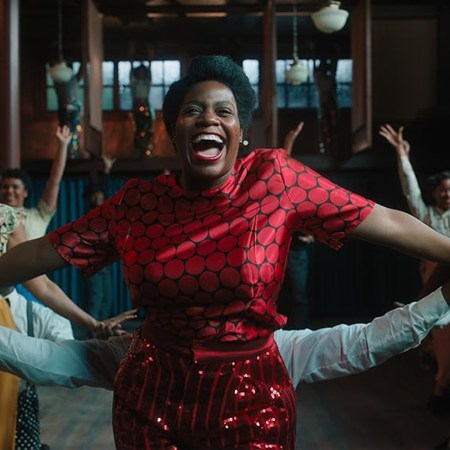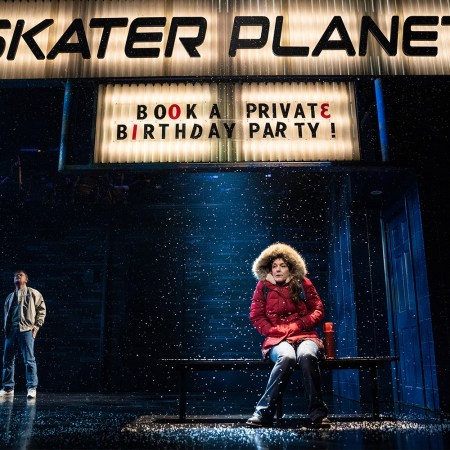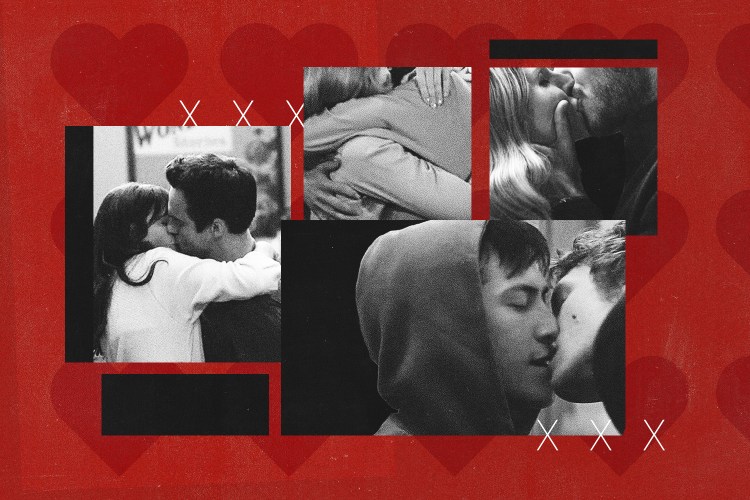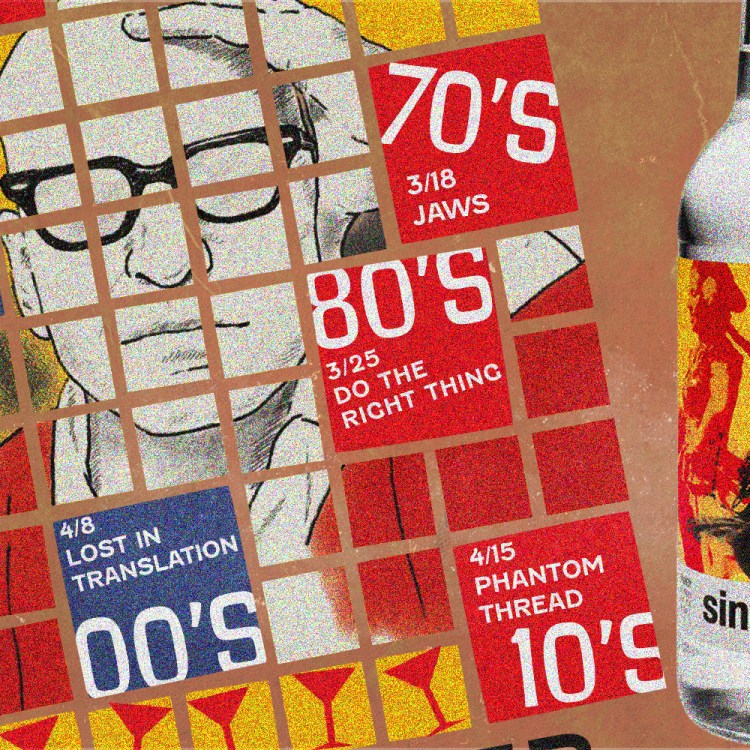For decades, Hollywood movies and Broadway musicals have maintained a symbiotic relationship, forged in mutual creative stasis: Hollywood will provide a steady stream of beloved blockbusters to be adapted into stage musicals that are occasionally very successful, while Broadway will continue to turn over its tourist-friendly mega-productions over to Hollywood once in-person demand has been sated but not completely sapped. It’s the latter supply — owing to the expense and space limitations of mounting an original Broadway smash — that could eventually run out, in turn leading to more situations like this month’s Mean Girls: A movie musical based on a Broadway show based on a movie, like a remake fed through multiple translators. For the sake of brevity, let’s call these projects remusicals.
For the most part, the history of remusicals is relatively short and novel. While plenty of stories have been hit the movie/musical/movie musical trifecta, they haven’t often followed that specific path of adaptation. For example, The Philadelphia Story was turned into both a movie musical and a stage musical under the name High Society, but the movie musical actually preceded the stage version — and both musical incarnations mostly exist as a footnote to the stone-cold classic status of the original film, anyway. (That a Bing Crosby/Grace Kelly/Frank Sinatra musical has been consigned to “the other one” status shows just how strong an impression the Cary Grant/Katharine Hepburn/Jimmy Stewart movie made.) Mame was a non-musical movie, a Broadway musical, and then a musical movie… but the Broadway version wasn’t really based on the film; a novel and a straight play preceded the movie version. Multiple projects based on the same non-movie source material don’t really count.
For whatever reason — perhaps a healthy appreciation of their own absurdity? — true remusicals have tended to include some element of self-aware faux-campiness. The shining example is Little Shop of Horrors, which began life as an ultra-quickie B-movie about a man-eating plant, was adapted into a shockingly tuneful off-Broadway musical comedy with songs by Alan Menken and the late Howard Ashman, which then became a Frank Oz-directed classic and maybe the best American movie musical of the 1980s. Making an off-Broadway musical about a carnivorous plant might sound insufferably cutesy (and current off and off-off stages are littered with “musical parody” versions of wannabe-incongruous properties from Star Wars to Saw), but the serious craft of the Ashman-Menken songs push the heightened material back into sincerity. By the time Little Shop made it back to the big screen, Oz’s movie didn’t really read as a spoof of old horror pictures. With the benefit of close-ups augmenting excellent performances from Rick Moranis and Ellen Greene, Oz realized that audiences would no longer stomach the more satiric, downbeat ending of the stage version. The revision may have been a compromise, but it also lends the movie its own distinct identity.
There’s less to sanitize in the similarly ’60s-flavored Hairspray remusical, despite the John Waters source material. The original Waters film is probably his sweetest project, a relatively easy fit for a Broadway translation, which then turned back around to the movies in 2007, surviving Adam Shankman’s persistently flat direction on the basis of spirited performances and a couple of showstopping songs. A couple of years earlier, another singular comic voice was not so lucky, as the movie version of the musical version of Mel Brooks’ The Producers flailed despite the involvement of original Broadway stars Nathan Lane and Matthew Broderick. Actually, maybe because of their involvement; Lane and Broderick pitch everything toward a nonexistent balcony, and without the roaring approval of a Broadway audience, the show feels echo-y and desperate, as if it comes with its own built-in empty house. Without its proper live energy, The Producers just plays like the world’s worst remake of one of the all-time best comedies.
Chris Briney Is Making Waves and Hitting His Stride
The “Summer I Turned Pretty” actor debates quiet luxury, Dickies supremacy and whether he actually qualifies as Gen ZThat’s the perilous position the 2024 Mean Girls finds itself in: Yes, it’s bringing a popular musical to an audience that may not have had the chance to experience it in person, but it’s also remaking an extremely well-known comedy classic where everyone already knows the best lines. Can watching a new cast recite “stop trying to make fetch happen” and “almost too gay to function” really compete with the original, or even fans’ own quote-alongs?
It cannot; there are times when the new Mean Girls does just function as its own quote-along cover band, playing the hits. Yet the songs themselves are less familiar, and they’re one of two elements that wind up giving the remusical some surprising life. First, the staging of the songs from the Broadway show by directors Samantha Jayne and Arturo Perez Jr. is consistently inventive, something that a surprising number of movie musicals still struggle with after all these years. Perez and Jayne play with aspect ratio, perspective shifts, long takes, smartphone frames within frames, and self-referential humor to flow big production numbers into the familiar story, mitigating the slight Broadway cheesiness of the songs themselves. There are two big hit musicals in theaters right now, Wonka and The Color Purple, that don’t integrate their musicality with nearly so much grace or playfulness. If there are traces of the Mean Girls production that was originally intended as a direct-to-streaming feature, you can also see the moments where executives might have been convinced that it would play well in theaters. It does! Perez and Jayne have fun with the form — the very act of sneaking in and out of big-musical expressiveness without condescending, or playing it all off as fantasy.
The other part of the Mean Girls remusical that works especially well comes courtesy of returning screenwriter (and supporting player) Tina Fey, who also wrote the original film and the Broadway adaptation. It seems a little counterintuitive to have the same writer on all three versions, courting the danger of repetition — and there is some of that obvious self-quoting (though “fetch” is now amusingly attributed to Juno, one of the original film’s mid-2000s contemporaries). But Fey is also a shrewd comic mind who understands the value of surprise, and the “updating” of Mean Girls becomes like a sketch-comedy game as an audience familiar with the material tries to anticipate when it might zig or zag in a different direction, based on what has and resolutely has not changed in “girl culture” over the past 20 years. The particulars of name-calling and social pecking orders have shifted. (“If you don’t dress slutty, that’s slut-shaming us!” Gretch Wieners frantically explains at one point.) But Cady (Angourie Rice, with an Amy Adams-y take on Lindsay Lohan’s old role) still pretends to be bad at math in hopes of attracting her dream boy.
Some of these changes are just picked up from the stage, and there are moments in Mean Girls where it feels like any post-2004 iteration of the material will forever be playing catch-up, despite its core universality. The story now incorporates social media (which effectively didn’t exist in 2004 and couldn’t be as smoothly depicted on Broadway) without truly drilling into the ways technology can turn bullying into an expansive, global team sport; it’s more some extra stylistic punctuation to make it clear this isn’t a period piece. Some of the edgier jokes from the 2004 film — like the idea that there’s a racial component to social cliques — are discarded in a way that’s supposed to be inclusive (accompanying the fact that the three Plastics are now no longer all white) but sometimes feels more like a polite dodge.
Still, this is easily one of the more successful remusicals, in large part because the high school experience feels naturally unfinished; there will always be another generation figuring out how (or whether) to “coexist,” as the new movie puts it. So often, movie versions of famous musicals come across like weird little take-home souvenirs, as imperfect a reproduction as an action figure or a novelization. The Mean Girls remusical uses its cinematic bona fides to more smoothly evoke the spirit of theater: It’s just one more performance in an ever-changing line.
This article appeared in an InsideHook newsletter. Sign up for free to get more on travel, wellness, style, drinking, and culture.
